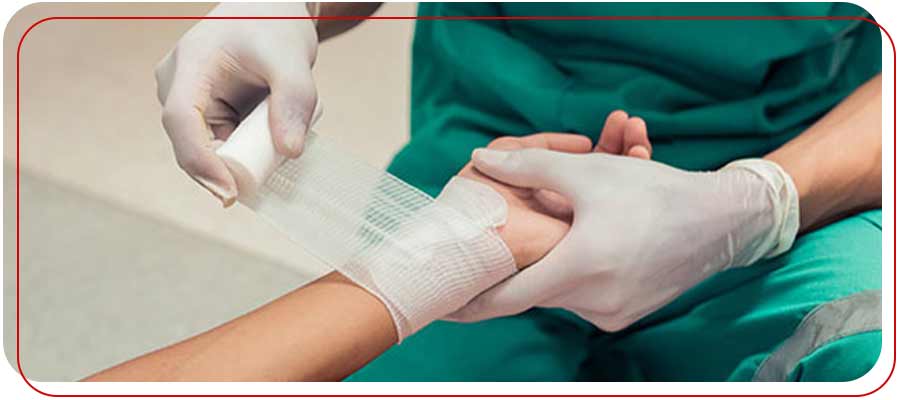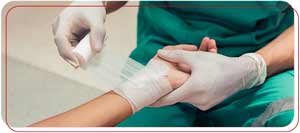How Does Wound Care Differ for Chronic vs. Acute Injuries?
Wound care is essential to prevent infections, promote healing, and reduce the risk of complications. The approach to wound care differs for chronic and acute injuries. Acute wounds, such as cuts or scrapes, usually heal quickly with proper cleaning and dressing. In contrast, chronic wounds, like diabetic ulcers or pressure sores, heal more slowly and require specialized care. Visit Dr. Alfonso Espinel, MD, at PrimeHealth Primary Care, for proper treatment that helps support the body’s natural healing processes and minimizes scarring. For more information, please contact us or request an appointment online. We are conveniently located at 3014 53rd Ave East, Bradenton, FL 34203.



Additional Services You May Need
• Physical Exam
• Wound Care
• Sports and School Physicals
• Lab Tests
• Primary Care
• Immunizations
• X-Ray
• Blood Testing
• Chronic Care
• Diabetes
• Skin Conditions
• Procedures
• STD Testing
• Telemedicine
• Covid Testing
• Occupational Medicine
• Corticosteroid Joint Injections
• Anterior Nasal Packing
• Eye Irrigation for Chemical Exposures
• EpiPen Administration and Monitoring
• Oxygen Administration
• Breathing Treatments
• Blood Draws and Basic Lab Tests
• ECG Interpretation
• Laceration Repair
• Incision and Drainage (I&D) of Abscesses
• Foreign Body Removal
• Burn Care
• Wound Debridement
• Nail Trephination
• Ingrown Toenail Removal
• Skin Tag Removal
• Skin Wart Removal
• Steri-Strip and Skin Adhesive
• Splinting for Minor Fractures or Sprains
• Joint Aspiration for Pain Relief or Diagnostic Purposes
• Dislocation Treatment
• Crutch Fitting and Gait Training
• Cerumen (Earwax) Removal
• Eye Foreign Body Removal
• Hemorrhoid Care (Non-Surgical)
• Nebulizer Treatments
• Abscess Drainage
• Skin Glue Application
• IV Placement and Fluid Administration
• Rapid Diagnostic Testing
• Tetanus/Diphtheria Vaccination

Additional Services You May Need
• Physical Exam
• Wound Care
• Sports and School Physicals
• Lab Tests
• Primary Care
• Immunizations
• X-Ray
• Blood Testing
• Chronic Care
• Diabetes
• Skin Conditions
• Procedures
• STD Testing
• Telemedicine
• Covid Testing
• Occupational Medicine
• Incision and Drainage (I&D) of Abscesses
• Laceration Repair
• Foreign Body Removal
• Burn Care
• Wound Debridement
• Nail Trephination
• Ingrown Toenail Removal
• Skin Tag Removal
• Skin Wart Removal
• Steri-Strip and Skin Adhesive
• Splinting for Minor Fractures or Sprains
• Joint Aspiration for Pain Relief or Diagnostic Purposes
• Dislocation Treatment
• Crutch Fitting and Gait Training
• Corticosteroid Joint Injections
• Cerumen (Earwax) Removal
• Anterior Nasal Packing
• Eye Foreign Body Removal
• Eye Irrigation for Chemical Exposures
• Hemorrhoid Care (Non-Surgical)
• Nebulizer Treatments
• EpiPen Administration and Monitoring
• Oxygen Administration
• Breathing Treatments
• Abscess Drainage
• Skin Glue Application
• IV Placement and Fluid Administration
• Blood Draws and Basic Lab Tests
• Rapid Diagnostic Testing
• ECG Interpretation
• Tetanus/Diphtheria Vaccination






